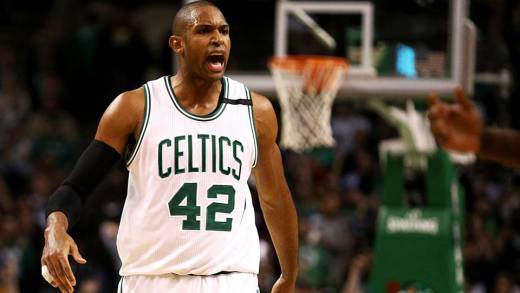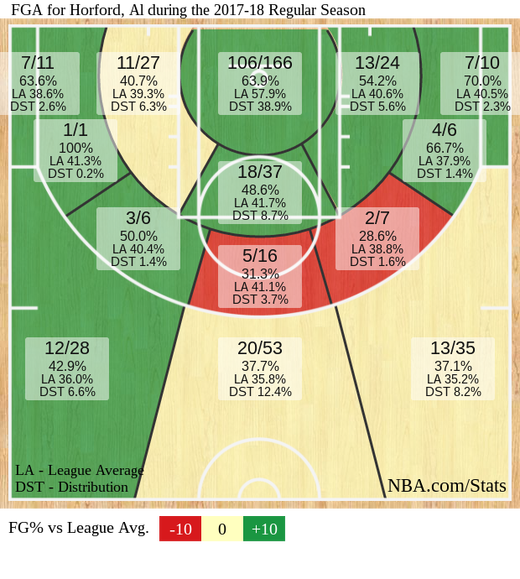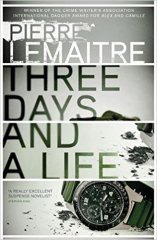
On Tuesday, Kevin O’Connor of The Ringer released his ballot of starters for the NBA All-Star game, which is just over a month away. For the first time in the All-Star game era the game won’t peg the Eastern Conference stars against the Western Conference stars. Instead, the leading vote-getters from each conference (which are currently LeBron James and Steph Curry … not much of a surprise) choose their team from a pool of starters and backups. The premise of the new plan stemmed from the lack of defense and intensity in past All-Star games in hopes to make the event more compelling to fans. It’s certainly an intriguing idea, and it would be wonderful to see who Curry and James pick for their respective teams. Would Curry try to infiltrate the Western team with Warriors by selecting KD, Draymond and Klay Thompson? Who would be the last pick in this “fantasy draft”? Would LeBron pick Kyrie? Unfortunately, the All-Star draft will not be televised — which is a shame.
Despite the ongoing narrative of who would draft who, the deadline for the All-Star game ballot submissions was Monday, January 15 at 12:00 p.m. Fans, like myself, are somehow accounted for 50 percent of the vote, while media and players each count for 25 percent. Each voter votes for three frontcourt and two backcourt players in each conference. In O’Connor’s ballot for the Eastern Conference he had Irving and DeMar Derozan of the Toronto Raptors as his starting guards, and had James and Giannis Antetokounmpo of the Milwaukee Bucks as two of his starting frontcourt players. These four players have been almost unanimous as starters for the Eastern conference, with the last frontcourt player up for debate. Kristaps Porzingis of the New York Knicks is a viable option: He’s averaging 23.7 points and 6.9 rebounds with a 20.49 PER (Player Efficiency Ranking) for a Knicks team that’s three games out of the playoffs. Philadelphia’s Joel Embiid has been ridiculous at times, and is averaging 23.8 points, 10.8 rebounds with a 23.15 PER. But he has missed time due to injury, which was ultimately a deciding factor in O’Connor’s ballot. There were other candidates as well — Andre Drummond of the Detroit Pistons, who’s having a career year, and Kevin Love of the Cleveland Cavaliers — but O’Connor slid Al Horford into his starting lineup. Are you surprised by that?
You shouldn’t be.
If you’re looking at traditional stats, Horford isn’t going to blow you away by any means. Through Wednesday, Horford is averaging 13.4 points, 7.9 rebounds and a block in 32.6 minutes a game — not close to the stats Embiid and Porzingis produce at a traditional glance. He doesn’t have the ability to individually dominate a game like those two are capable of, nor will he force opposing defenses to alter its game-plan around him. Instead he’s been defensive anchor and a remarkably efficient, steadying force for the best team in the Eastern Conference. Most of what he does on the floor wont equate to those traditional stats. But while he might not put up gaudy stats his advanced metrics, efficiency and basketball presence were major reasons why Bill Simmons, the CEO of The Ringer, picked him for the last frontcourt spot on The Lowe Post, a podcast by NBA insider Zach Lowe in which they were discussing Eastern Conference All-Star starters in Lowe’s most recent episode. Here’s a transcript from Simmons on Horford:
I think there’s an advanced metrics case for him. Which, again, I don’t want to get too carried away with, but you know the on-court, off-court all that stuff. His efficiency has been amazing but just like watching the team game-in and game-out, when he’s not out there, they’re in trouble. The defensive presence and just how smart he is, the way he moves the ball offensively, the spacing that he has, the pick-and-roll that he has with Kyrie — which anytime they want to run they can get a basket off of. He’s so much fun to play with — great teammate. And you know, when people talk about “is Kyrie and MVP candidate?” it’s really hard for me to separate Kyrie and Horford because I think they’re equally valuable to the team, so that’s why I lean toward him.
And here’s Zach Lowe’s case for picking Horford for the final frontcourt spot.
Look, I’m an Al Horford truther, you know that. I think Horford is like a criminally underrated, all-around star player. And what he’s done to shore up their defense — which is still the best in the league — and his passing, and his shooting, and his partnership with Kyrie … I’m going to go with Horford for the fifth spot.
While Simmons didn’t wan’t to get in to the grit-and-grind of Horford’s advanced metrics in that episode, it’s an incredibly important piece to Horford’s candidacy as a starter. Irving has been a top-10 player this season and is a legitimate MVP candidate but, as Simmons stated, you can make the case that Horford is just as valuable as Irving. While this isn’t an advanced metric, it should be noted that Horford is an excellent passer for a big man. He is currently averaging a career-high 5.3 assists a game, which leads the Celtics and ranks second among all power forwards in that category, only behind Golden State’s Draymond Green (7.6). Maybe the most influential advance statistic is NET rating, which calculates a player’s point differential per 100 possessions while he’s on the court. Horford’s NET rating currently sits at 8.7. That ranks eighth among players who play at least 32 minutes a game. Some of the names ahead of him include Stephen Curry, Kevin Durant, James Harden, Draymond Green and Jimmy Butler. And Horford, the anchor of the best defense in the league, also has the best defensive rating of players who play at least 32 minutes a game in the league (100.4). He is also fourth in the NBA in defensive win shares (2.39). His defensive presence has been outstanding, and is a vital reason why the Celtics currently lead the Eastern Conference.
And remember when Simmon’s was talking about how efficient Horford was on the offensive end? Horford currently has an effective field goal percentage (a statistic that adjusts field goal percentage to account for the fact that a 3-point field goal is worth more than a 2-point field goal) of 58.9, which ranks seventh in the NBA among players who play at least 32 minutes a game. Horford is also shooting a career-high 42 percent from 3-point land, which ranks third among power forwards and eighth overall. And it’s not like he’s taking his 3’s from one specific spot on the court. He can shoot it from the both corners and the top of the key. That has tremendously helped the spacing for the Celtics, and has allowed Irving to operate with the most space he’s ever had in his career. Horford is also a capable scorer in the mid-range and post as well, and is shooting above league average in nearly every spot in the half court. Take a look at his shot-chart this season, courtesy of NBA.com.

As you can see, Horford can score from almost everywhere, and he’s combined to shoot just 23 shots in the areas where he is below league average. That means he rarely ever takes a bad shot, neither for the detriment of the team or himself.
Horford has taken some criticism from Boston media since he signed his four-year, $128 million deal back in 2016. He’s been criticized for his lack of aggressiveness, and even earned the nickname “Average Al” from WEEI radio host, and former Red Sox, Lou Merloni last season. Merloni will throw that name towards Horford whenever he has an off game, and the nickname has continued to stick since then. Fans and some local media have wondered if the Celtics spent too much money on a guy who’s only putting up 13, 7 and 5. But in sports, optics can sometimes fool you. Horford has never been a top-20 scorer in any year of his career (his career-high is 18.6 PPG back in 2013-2014), but has been an elite defender for the past few seasons. The Celtics didn’t get him so he could be a 20 and 10 player that guys like Merloni desperately wan’t — that’s not in his DNA. Horford’s impact on the court isn’t always going to show up in the boxscore. He’ll have games like Boston’s 91-84 win against the Minnesota Timberwolves back on January 5 where he had only seven points and five rebounds. Horford might not be the best player on the court at any specific time, but he’s been the most important for a team that’s knocking on the door towards greatness.
Advertisements Share this:




